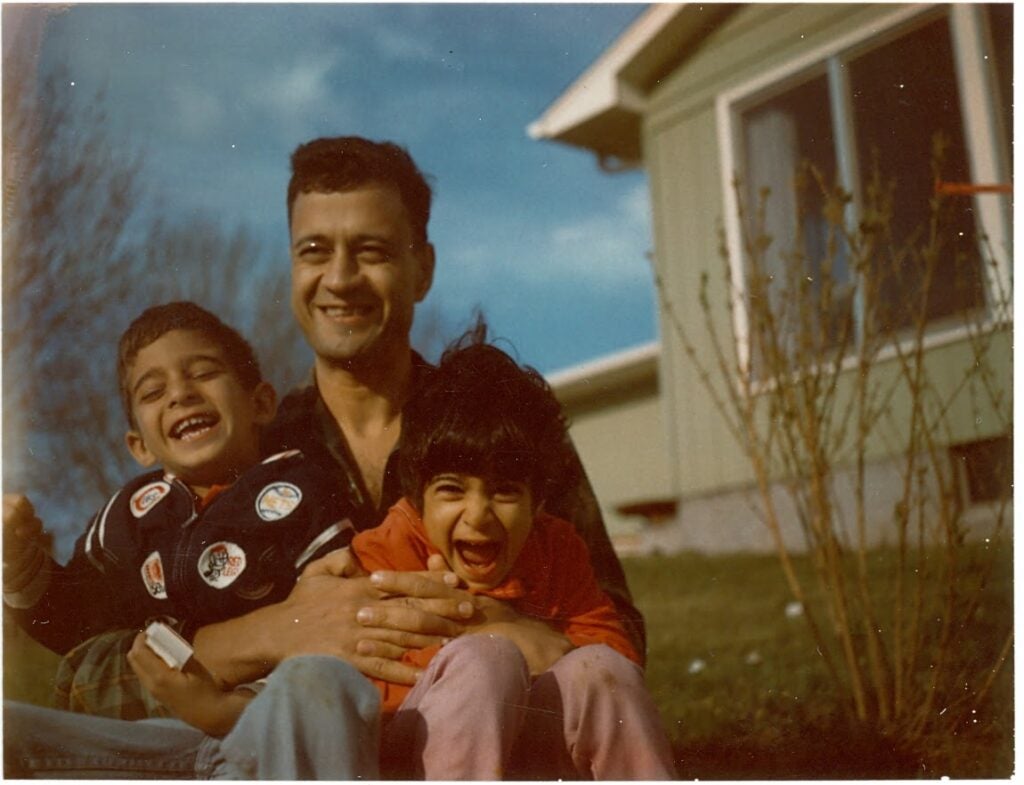Legendary civil rights attorney joins WISH-TV legal fight
The full interview with Cyrus Mehri is at the bottom of this story. App users can go online to view the interview at the bottom of the story.
INDIANAPOLIS (WISH) — He is one of the most respected civil rights attorneys in the United States, described as a “one-man army with an undeniable impact on corporate America.”
For Cyrus Mehri, the drive for social justice and racial equity began as a child.
“I knew as early as that age that I wanted to become a lawyer and I wanted to create justice,” Mehri told WISH-TV during an exclusive interview. “I did know that as a pre-teen or teenager, and I’ve been on that same path ever since.”


Mehri’s parents immigrated to the United States from Iran, where his mother’s work had caught the attention of the Shah of Iran and the country’s secret police.
“They banned her from leaving the country and from completing her college education. So, when you’re suppressed that way, and able to get out and come to the United States, you really hold precious freedom and democracy that we have in the U.S.,” Mehri said.
Mehri says his parents valued the freedom and education they found in America. He graduated from Hartwick College in 1983 and Cornell Law School in 1988, launching a groundbreaking legal career that has taken on some of the largest corporate giants in the U.S.

Cyrus Mehri’s relentless pursuit in race and gender cases has resulted in some of the most significant discrimination legal settlements in history:
- $176 million from Texaco, Inc.
- $192.5 million from Coca-Cola
- 279 new apprenticeship positions for African American employees at Ford Motor Company
Mehri also spearheaded the “Women of Wall Street” project, which forced the nation’s largest financial institutions to transform the way they treat women, and open new opportunities for women on Wall Street.
Perhaps his most famous work: creating the NFL’s Rooney Rule with Johnny Cochran, a rule that requires NFL teams to interview minority candidates for open coaching and management positions.


Mehri says the rule had early success.
“When we started, the hire rate of African-American minority coaches was to say 1 or 2%. When Johnny and I got in and helped create The Rooney Rule with Dan Rooney, the owner of the Steelers, since then the minority hire rate has been 20% which is way more than it was before, but also nowhere near where it needs to be,” Mehri said.
But, Mehri warns, the NFL began to get lax in enforcement.
“There came a point in time where they lost the north star, you might say the league, because they didn’t enforce the rule,” Mehri said. “When you don’t enforce it, you send the message that you don’t care about it. So they had a big backsliding.”
In 2021, the NFL enhanced The Rooney Rule to require every team to “interview at least two external minority candidates for open head coaching positions, and at least one external minority candidate for a coordinator job.”
Mehri has joined another corporate anti-discrimination fight, this one in Indianapolis.
Merhi joined the legal team for Circle City Broadcasting and WISH-TV in the legal showdown with AT&T and DISH Network.
“It’s an industry that desperately needs more change and more inclusion,” Mehri said.
Mehri and DuJuan McCoy, Founder, President, and CEO of Circle City Broadcasting, say the media giants are discriminating against McCoy for one simple reason: because McCoy is black.

“Fifty years ago, the Supreme Court said, if there is an inexorable zero of representation, that’s powerful evidence of discrimination. Fifty years later, only 1% of stations in our country are African American owned and operated, only 1%. So, to me, 50 years later, that’s a powerful evidence of discrimination,” Mehri said.
Mehri also highlighted the improvements at WISH-TV and WNDY since McCoy took over the television stations in September 2019.
“I look here at what Mr. McCoy has done to build this station locally, create new jobs, create statewide news programming and podcasts,” Mehri said. “He actually has created a better company than was there before, and yet, black and white, when it was white-owned there were more favorable economic terms that what he has right now in a black-owned station.”
Merhi says his goal is more than just winning: he wants to advance justice in all industries.
“I think there was a period in time where we thought we were in a post-racial America, that we had somehow achieved equal opportunity. But, I knew from our clients that we hadn’t,” Mehri said. “I’ve seen it across industries. I’ve taken on Madison Avenue and saw the race discrimination there. I’ve seen it in financial services, racial discrimination there. It’s in journalism. It’s in all aspects of our country right now, but we can overcome it. I actually feel right now more hopeful than I’ve ever felt about we can make this progress.”
Watch the full interview with Cyrus Mehri: